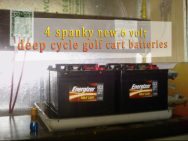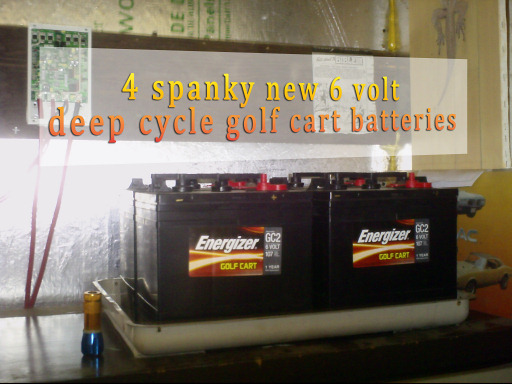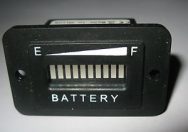Solar system balancing act
Life with a small solar system is a balancing act. We have lived 8+ years now with our small solar system, tweaking it, adding to it, improving it, trying to balance our system vs the power load. Of course we are running a small load most of the time, a couple of laptops, the wireless network for said laptops, a few lights, a 12 volt water pump, a small radio, and the fridge, THAT is what takes up the most power at any given time.
Our fridge is very efficient, it started out life as a small chest freezer, we use an external thermostat (originally designed to turn small chest freezers into kegeraters), we set the temp on refrigerator temps, when it detects the correct temp inside of the box, it cuts off the power to the unit, you can read more about that here. This last winter, we pushed the fridge outside to the front porch, which meant the box didn’t have to work as hard to keep the cold temps inside.
The biggest balancing act for us is the day length vs the outside temps. During the winter, we have shorter days, which means fewer hours in which to charge our solar system, but since the outside temps are cold, the fridge doesn’t have to run as often, sometimes not at all.
During the summer months, it’s warmer outside, making the fridge run more often, but with the longer day length, there are more hours of sun to charge our batteries, so all in all, it works out pretty well, as long as we pay attention to the upcoming weather and moderate our power useage as necessary.
With the warmer temps usually come our rainy season or monsoon season, a few months where we tend to get rain nearly everyday, having overcast skies also limits the amount of solar power we get, though our panels do get some charge even with clouds present, just not the full amount of charge as a sunny day.
I have some exciting news, I have been given the opportunity to review another battery desulfator, I did a review last year on the Whizbang Plus battery desulfator (part one and part two), they worked, but were small, you pretty much have to have one per battery, this other company’s claim to fame is their second generation battery desulfators are designed to work in off-grid situation on larger battery banks, there is much more to this system. I’ll keep you in the dark about it for now, but be looking in the next week or so, as soon as I get the desulfator, which is on its way here now, I’ll do a first impression review, hook it up and let you know what I think about it, I will say that it has many more features that are going to …




